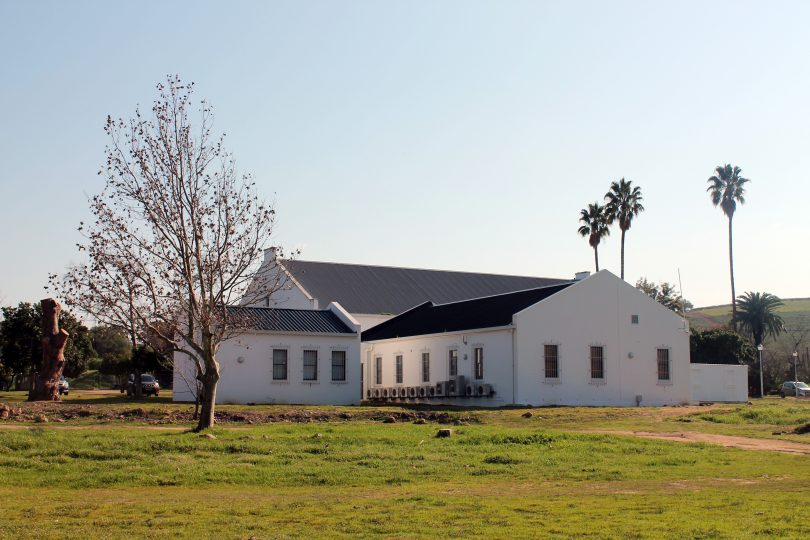When building started on the Agriculture Centre on Wellington Campus, the biggest problem was creating a French drain to siphon water away from the buildings. Three years later the biggest water-related problem is how to irrigate the experimental farm that will form part of the next phase of building.
Affectionately referred to as the Agri-hub by staff and students who started using the centre earlier this year, the buildings house 327 students studying Agriculture from first year to Masters level and 10 staff members.
In-house CPUT-employed architect Adriana Hornea says executive management decided to use the empty land next to their rugby fields, which sported a caretaker’s house and several palm trees. She had overseen the building of an experimental wine cellar on the premises between 2007 and 2009 for use by the viticulture and oenology students.
Taking its cue from the existing experimental cellar and caretaker’s home Somerset West-based husband and wife team Linares Architects designed the campus in a traditional Winelands style that wouldn’t clash with the area’s aesthetic.
Lillian Linares pointed out that when they started building the ground was very wet which constrained where they placed the Administration block. “It was not advisable to put a laboratory on the other side of the Admin block, that’s why they had to put the channels down to take away the water,” said Linares.
Their first master plan suggested a much bigger complex but budget restraints limited them to one laboratory building, one lecture hall and an administration building.
A walkway from the admin building leads the students to a courtyard and then a lecture hall with the laboratory to the right of classroom.
Unfortunately, after the buildings were completed the big tree in front of the entrance was discovered to be dying and it had to be cut down to a stump.
Head of the Agriculture Department Professor Francis Lewu laments the loss of shade but is excited about the possibility of up-cycling the stump into a signpost that will show what they do on the campus – teach students about the technicalities of growing crops and, eventually, taking care of livestock.
The next phase will be to extend the laboratory spaces and lecture halls, add more office space and most importantly get started on the experimental farm.
First though Lewu says they will erect greenhouse tunnels to start the students propagating plants under controlled circumstances while they figure out how best to manage irrigation of the experimental farm.
“The plan for the second phase is to have fixed vineyards and orchards plus designated plots for the Applied Sciences Faculty,” he said.
Written by Theresa Smith











